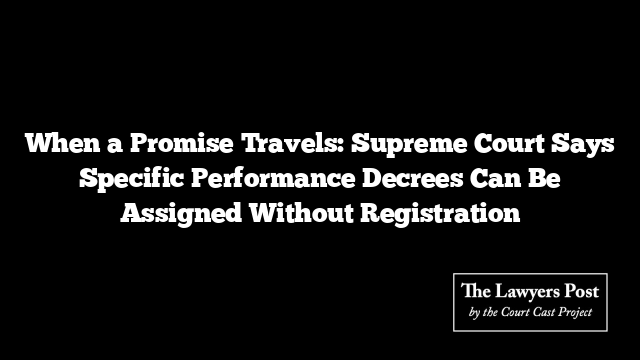In a ruling that slices through decades of procedural clutter, the Supreme Court has declared that a decree for specific performance of an agreement to sell may be handed over—assigned—without the ritual of registration. Why? Because such a decree isn’t a vessel carrying ownership; it’s merely a pass allowing the holder to ask the court to enforce a promise.
The Bench, speaking with crisp clarity, noted that when a decree doesn’t itself breathe life into any right, title, or interest in land, there’s no reason to force its assignment through the narrow doorway of compulsory registration. The decree is a key, not the property.
This dispute had its roots in a 1993 ex parte decree. Two years later, the decree-holder passed it on to the respondent through an unregistered assignment. When the assignee knocked on the court’s door to execute it, the legal heirs on the other side tried to shut the door, arguing the assignment was void without registration. The executing court agreed. The High Court did not.
Carrying the torch forward, the Supreme Court affirmed the High Court’s view: a specific performance decree is not a title-transferring instrument, so assigning it doesn’t activate the machinery of Section 17 of the Registration Act. It merely equips the assignee to continue chasing enforcement of the old agreement to sell.
Drawing from Suraj Lamps v. State of Haryana, the Court reiterated the principle: registration is mandatory for the actual sale deed, because that’s what moves ownership. But the assignment of a decree? No transfer of title—only a transfer of the right to knock at the court’s door.
And with that, the appeal was quietly laid to rest.





